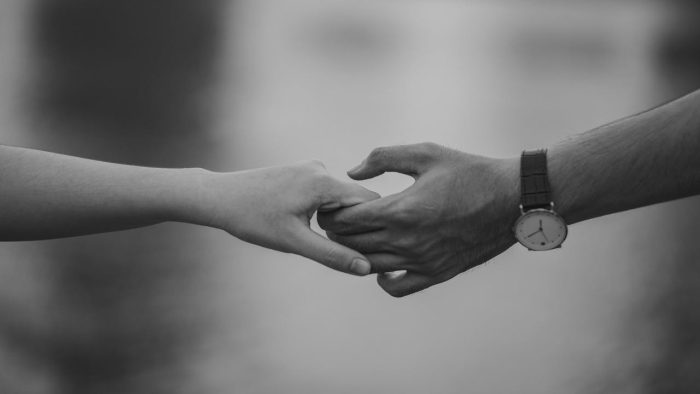
It feels odd to say that I’ve effectively spent half of my life in a string of age-gap relationships, but that’s what the math adds up to.
When my current partner turned 40, I joked to a dear friend and mentor that I’ve spent nearly two decades dating men in their 40s, certainly surpassing the 10,000-hour rule of expertise.
Given this experience, my own sense of aging and time has been warped—while many of my peers have married, had children, and even gone through multiple divorces, my profile has remained largely the same.
But as I approach this age group myself, I can’t help but ask: if I had a friend my age dating someone half their age, knowing what I know now, what would I think of that relationship? What would I say to my friend?
Unlike most older women I encountered in my youth, I feel deeply protective of young women—those my age and younger. So, amidst the noise and in the spirit that’s Valentine’s Day, I’m sharing what I wish my younger-self had known about age-gap relationships.
First, let’s look at ourselves before we look anywhere else:
If you are drawn to significantly older partners, ask yourself:
1. Are you an eldest daughter? Are you aware of the eldest daughter syndrome?
2. Do you identify as a parentified child?
3. Have you frequently relocated in your childhood?
4. Were your emotional needs met growing up?
5. Were your parents present and emotionally available to you?
If these resonate, stop here. Find a good therapist. Read as much as you can about these patterns. Becoming conscious of our wiring can save us years—if not decades—of our lives. The energy we carry is the foundation of everything. Nothing lasting can be built on ruins.
The Four Phases of Age-Gap Relationships as I have experienced them:
1. “I Can Show You the World”
The younger we are, the more intoxicating it feels at first. We’re being introduced to spaces inaccessible to most people our age—luxury, exclusivity, power. First taste of fine dining? Celebrity events? Private flights? These experiences put us at least a generation ahead of our same-age peers.
But this will change. Over time, we will come to realize that luxury is not love, power is not partnership, exclusivity often comes at a cost, and almost everything in life has a hidden price tag.
Many of us don’t actively seek out age-gap relationships. Between 18 and 25, I never made the first move. At first, it seemed impossible that someone twice my age could be romantically interested in me. Sometimes, I ignored it. Sometimes, I stayed up to write long emails to gently let them down. Sometimes, I simply ghosted. But without therapy, without strong female mentors, without a healthy support system, we unconsciously repeat patterns. We attract more of the same. And each time, we grow a little more numb. Our pain threshold rises, and with it, our ability to tolerate higher doses of poison.
And there are always eyes on us. We move differently after an age-gap relationship.
2. The Isolation Phase
Same-age friends start to seem “boring” in comparison to the high-life. How do you bring a 40-something to a college party or a group trip with 20-somethings? Slowly, we withdraw. We stop attending the spaces of our peers.
Instead, we enter older social circles, where we are the youngest, most inexperienced, most impressionable, and often the most quiet. Remember Priscilla’s entrance at Elvis’ party? Like that. We adapt to their world because ours no longer seems to fit. We make space for them more than they make space for us. And in doing so, we become increasingly isolated; we become more and more of a shadow and echo.
3. The Toxic Phase
Many age-gap relationships follow a narcissist-empath dynamic. For those of us with unresolved childhood wounds, we may unconsciously take on a caretaker role, as that’s the dynamic we knew from birth, and naturally, we know how to deal with partners who need fixing.
Healthy relationships expand us. They support our dreams, our autonomy, our growth. Unhealthy relationships make us smaller, and dim our light.
It is easy to dismiss red flags when we’re infatuated. But ask yourself: Is your world expanding, or is it getting smaller?
4. Out of Phase
One year, as a last effort to save a relationship I was already fading from, I brought him to meet my mother. Though he was much older, I arranged all of the logistics—flights, rental cars, accommodations, reservations, all during peak travel and holiday season. I drove. I planned. I took care. I paid. All of it.
I didn’t feel like a girlfriend. I felt like a mother and an assistant.
After I dropped him off at the airport, my mother asked me, “Does he expect you to take care of him after he retires?”
I was stunned. I had never thought that far ahead. But the facts point to differing life stages and energy levels, and that with time, we will find ourselves falling out of sync more and more.
Age-gap relationships eventually spin out of phase—it’s inevitable, as we age unevenly. One partner will enter their prime while the other begins to decline. Who is taking care of whom? Whose world will shrink as the cost? Will we sacrifice our self-care? These are the unsexy but necessary questions.
Now, About Them:
If well into their 40s, and they remain single, never married, never had children, and have never been in a serious relationship, this is a red flag: they’ve never known how to care, share, or commit.
If they still talk about their dad issues or abandonment trauma, this is a red flag.
They need therapy, not a relationship. And if we decide this is the relationship for us, it will become clear many years later, that this is a one-sided healing agreement that will eventually drain us.
After 25, it’s more natural to encounter age-gap relationships where the older partner is divorced or has children. This isn’t ideal, but it does indicate they’ve made past commitments. A “clean slate,” someone who has never had a long-term relationship before us, is often a sign that we are stepping into their pattern, rather than breaking it.
Consider the Future:
For those who long to see the world, experience more, and tend to have emotional maturity beyond their years, dating older seems to just make sense, even appealing. But time always catches up. And what will we have accumulated in the process? Who will we have become?
Looking back, my 25-year-old self would never have dated the men I did at 18. At 30, I would never have chosen the same men I did at 25. And at 33, I would not have chosen the men I did at 30.
But real love? The love I now understand? It’s choosing the same person, again and again and again.
And that is why controlling older people prefer younger prey: we are easier to mold before our sense of self is fully formed. But we all eventually reach the stage of reckoning.
The Final Question:
In rare cases, age-gap relationships can work. But they are the exception, not the rule.
The real question is: How comfortable are you with inequality as a permanent feature in your relationship?
>> Is there space in their life for you?
>> Are your needs prioritized?
>> Is your light growing, or is it dimming?
We have one precious life. Let’s not serve up our youth to those who will squander it. Let’s treasure ourselves so that we can draw in those who will love and treasure us in return.
~
 Share on bsky
Share on bsky
This account does not have permission to comment on Elephant Journal.
Contact support with questions.